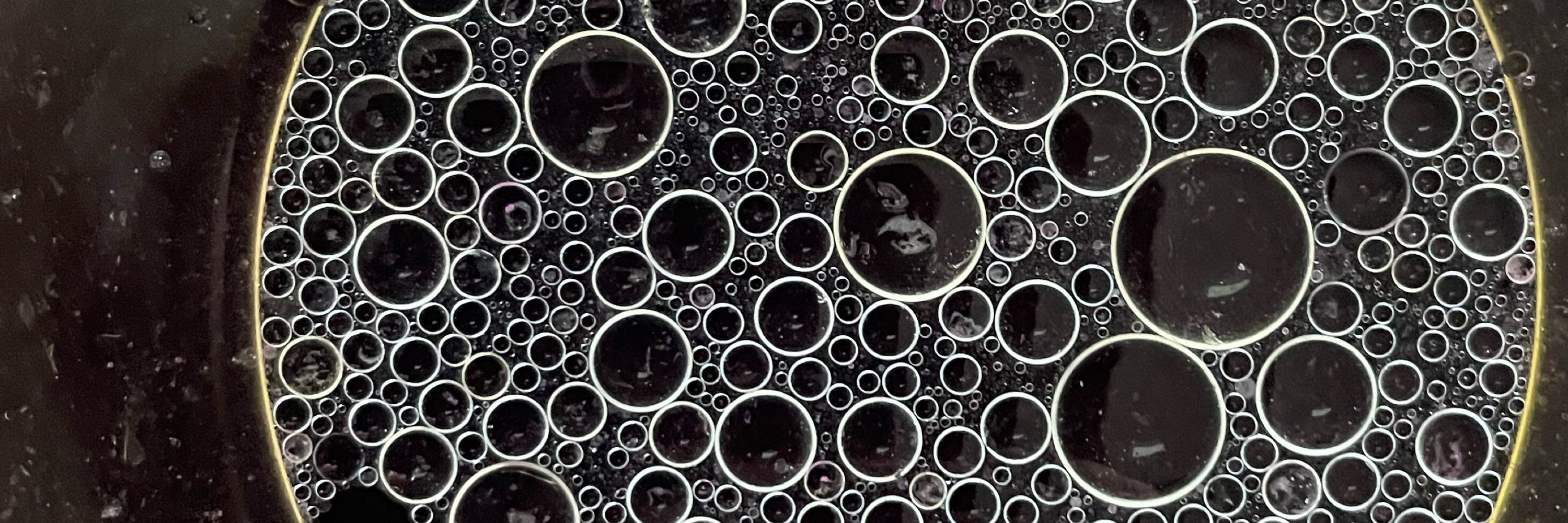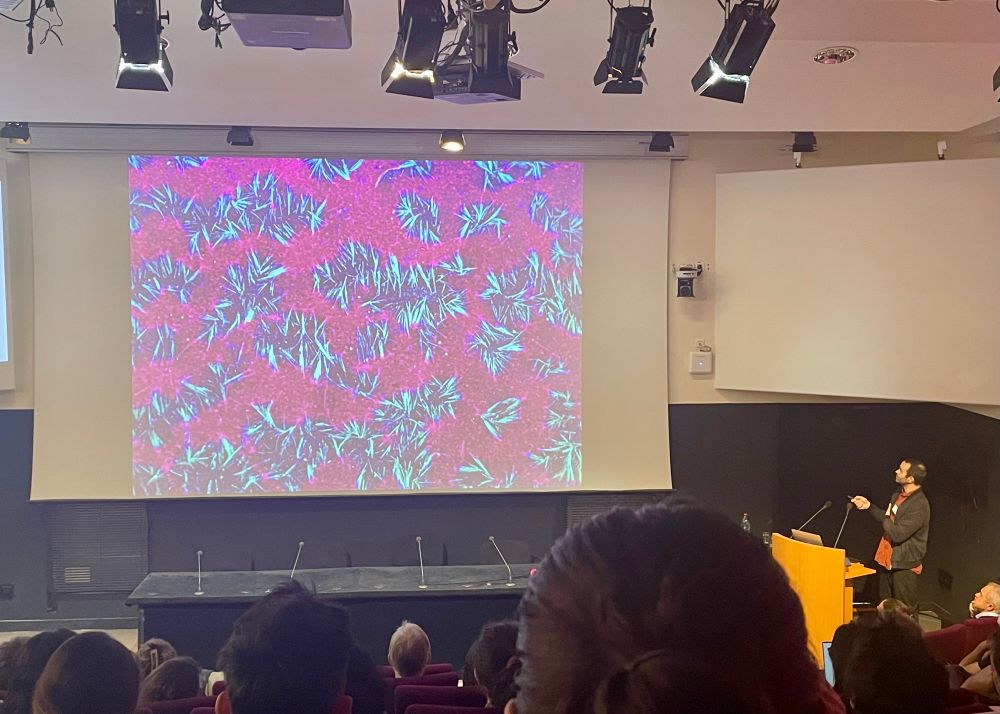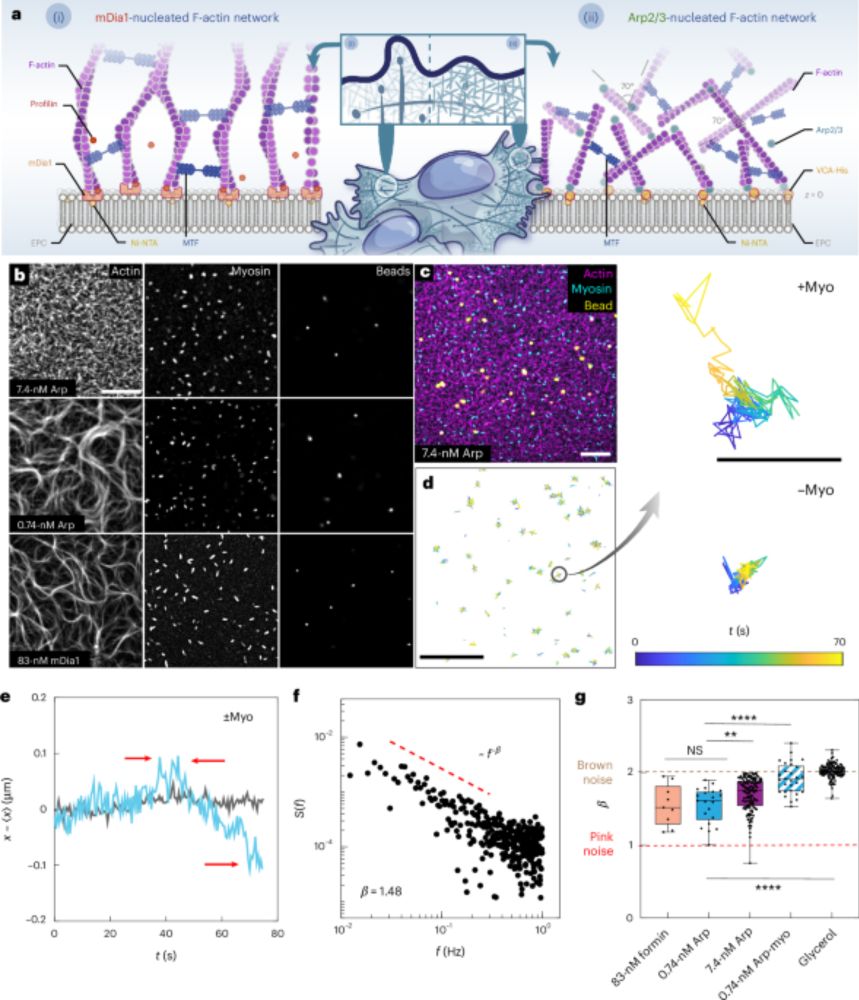
@lendertgelens.bsky.social Lab, KU Leuven
Complex Systems | Systems Biology
@ijmonod.bsky.social
www.biorxiv.org/content/10.6...
@ijmonod.bsky.social
www.biorxiv.org/content/10.6...
Cytoplasmic crowding acts as a porous medium that hinders macromolecular diffusivity.
Plus: a clever way to measure cell volume.
www.pnas.org/doi/10.1073/...

Cytoplasmic crowding acts as a porous medium that hinders macromolecular diffusivity.
Plus: a clever way to measure cell volume.
www.pnas.org/doi/10.1073/...
journals.aps.org/prxlife/abst...
We propose to think along Marr's 3 levels: computational problem, algorithm, implementation
Check out our review:
arxiv.org/abs/2510.24536

journals.aps.org/prxlife/abst...
We put cells and cytoskeleton filaments on the architecture of the musée d'Orsay.
www.musee-orsay.fr/fr/agenda/ev...
Scientists of the #CytoMorphoLab adapted their protocols to illustrate the questions that keep them awake at night.
-> Two shows on the 24th and 25th of January.


We put cells and cytoskeleton filaments on the architecture of the musée d'Orsay.
www.musee-orsay.fr/fr/agenda/ev...
Scientists of the #CytoMorphoLab adapted their protocols to illustrate the questions that keep them awake at night.
-> Two shows on the 24th and 25th of January.
May 18-22, 2026 Roscoff, France
Abstract deadline: January 31, 2026
Apply here: cjm.sb-roscoff.fr/en

May 18-22, 2026 Roscoff, France
Abstract deadline: January 31, 2026
Apply here: cjm.sb-roscoff.fr/en




Why do biological process rates scale nonlinearly with temperature, deviating from the straight line on an Arrhenius plot? The key may lie in their inherent complexity!
More in thread and here: doi.org/10.1101/2025...

Why do biological process rates scale nonlinearly with temperature, deviating from the straight line on an Arrhenius plot? The key may lie in their inherent complexity!
More in thread and here: doi.org/10.1101/2025...

This is the main thesis work of my PhD student Rebecca Poon, who caught many #platnereis larvae and tirelessly ablated them with a laser. THREAD

This is the main thesis work of my PhD student Rebecca Poon, who caught many #platnereis larvae and tirelessly ablated them with a laser. THREAD
Deadline: 20 December 2025
https://meetings.embo.org/event/26-cytoskeleton
#EMBOCytoskeletalFunction #EMBOevents #conference 🧪

Deadline: 20 December 2025
https://meetings.embo.org/event/26-cytoskeleton
#EMBOCytoskeletalFunction #EMBOevents #conference 🧪

You can find it at arxiv.org/abs/2509.08533
@michaelzhao.bsky.social @erzbergerlab.bsky.social

You can find it at arxiv.org/abs/2509.08533
@michaelzhao.bsky.social @erzbergerlab.bsky.social
barcelonacollaboratorium.com
#seminar #KULeuven #EMBL #BCNCollaboratorium

barcelonacollaboratorium.com
#seminar #KULeuven #EMBL #BCNCollaboratorium
📕 In #Reproducibility and Best Practices in Cell Biology: rupress.org/jcb/collecti...

📕 In #Reproducibility and Best Practices in Cell Biology: rupress.org/jcb/collecti...
All revealed in our new preprint doi.org/10.1101/2025...
All revealed in our new preprint doi.org/10.1101/2025...


#EESMicrotubules will bring together researchers who share an interest in microtubule biology and its relevance to health and disease 🩺
💻 s.embl.org/ees26-09-bl
✒️ Submit your abstract by 11 March

#EESMicrotubules will bring together researchers who share an interest in microtubule biology and its relevance to health and disease 🩺
💻 s.embl.org/ees26-09-bl
✒️ Submit your abstract by 11 March
📆 November 14th
📍 Institut Jacques Monod
🔗 pcd2025.sciencesconf.org
Abstract submission closes on 19 October
Registration closes on 7 November
@romet-jegou-lab.bsky.social @upcite.bsky.social @cnrs-idf-villejuif.bsky.social

📆 November 14th
📍 Institut Jacques Monod
🔗 pcd2025.sciencesconf.org
Abstract submission closes on 19 October
Registration closes on 7 November
@romet-jegou-lab.bsky.social @upcite.bsky.social @cnrs-idf-villejuif.bsky.social
In frog egg extract “mini-cells” we see that as nuclei grow, cycles slow down. The period scales with the nuclear-to-cytoplasmic ratio, across Xenopus species, and even when DNA replication or transcription are blocked.
👉 doi.org/10.1016/j.cu...

@natureportfolio.nature.com
Nature Physics! It illustrates how architecture and active stress mutually regulate Criticality and exhibit Anderson Localization-like phenomenon. www.nature.com/articles/s41...

@natureportfolio.nature.com
Nature Physics! It illustrates how architecture and active stress mutually regulate Criticality and exhibit Anderson Localization-like phenomenon. www.nature.com/articles/s41...

I Came to Study Aging. Now I’m Trapped in ICE Detention. www.nytimes.com/2025/05/13/o...
I Came to Study Aging. Now I’m Trapped in ICE Detention. www.nytimes.com/2025/05/13/o...

